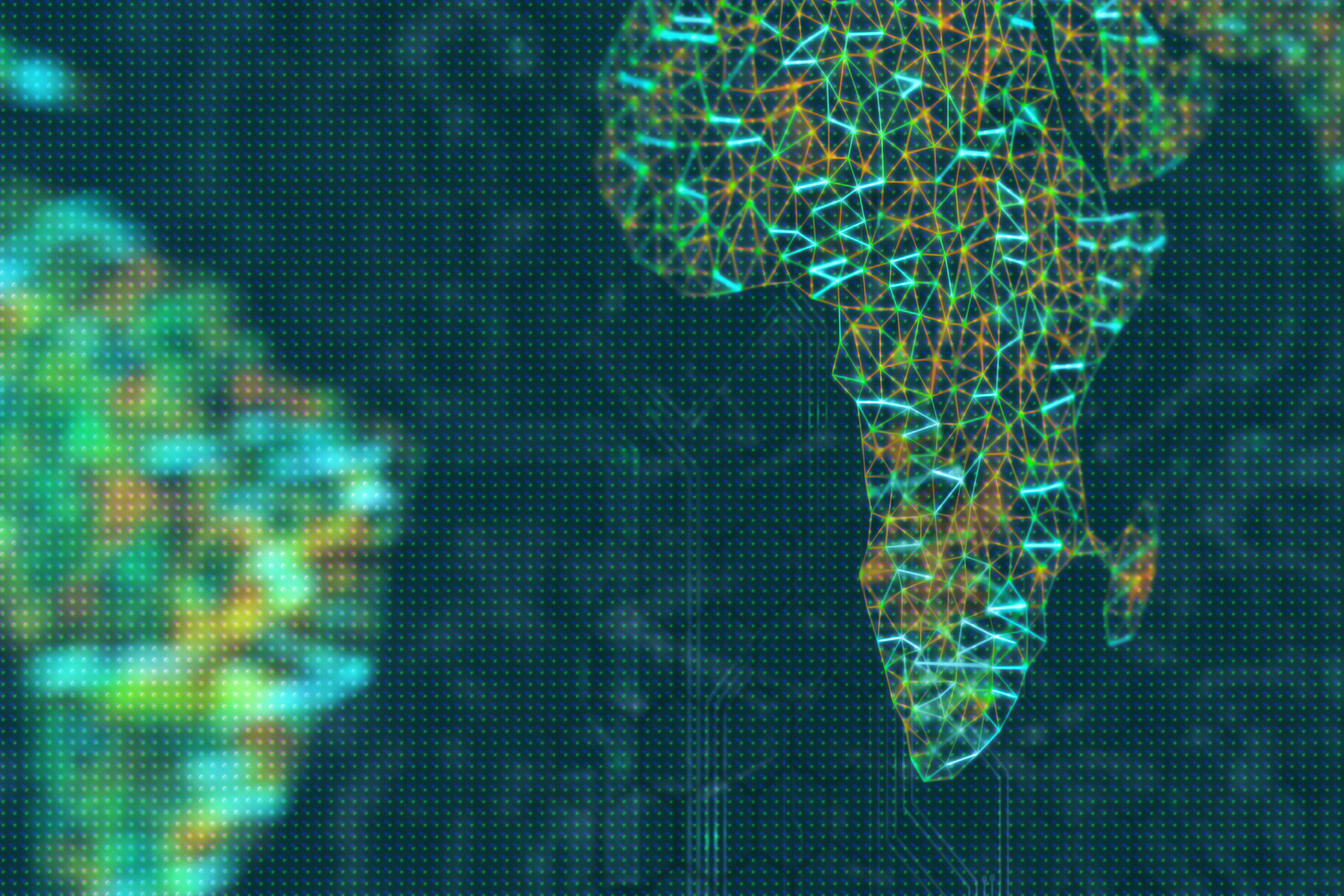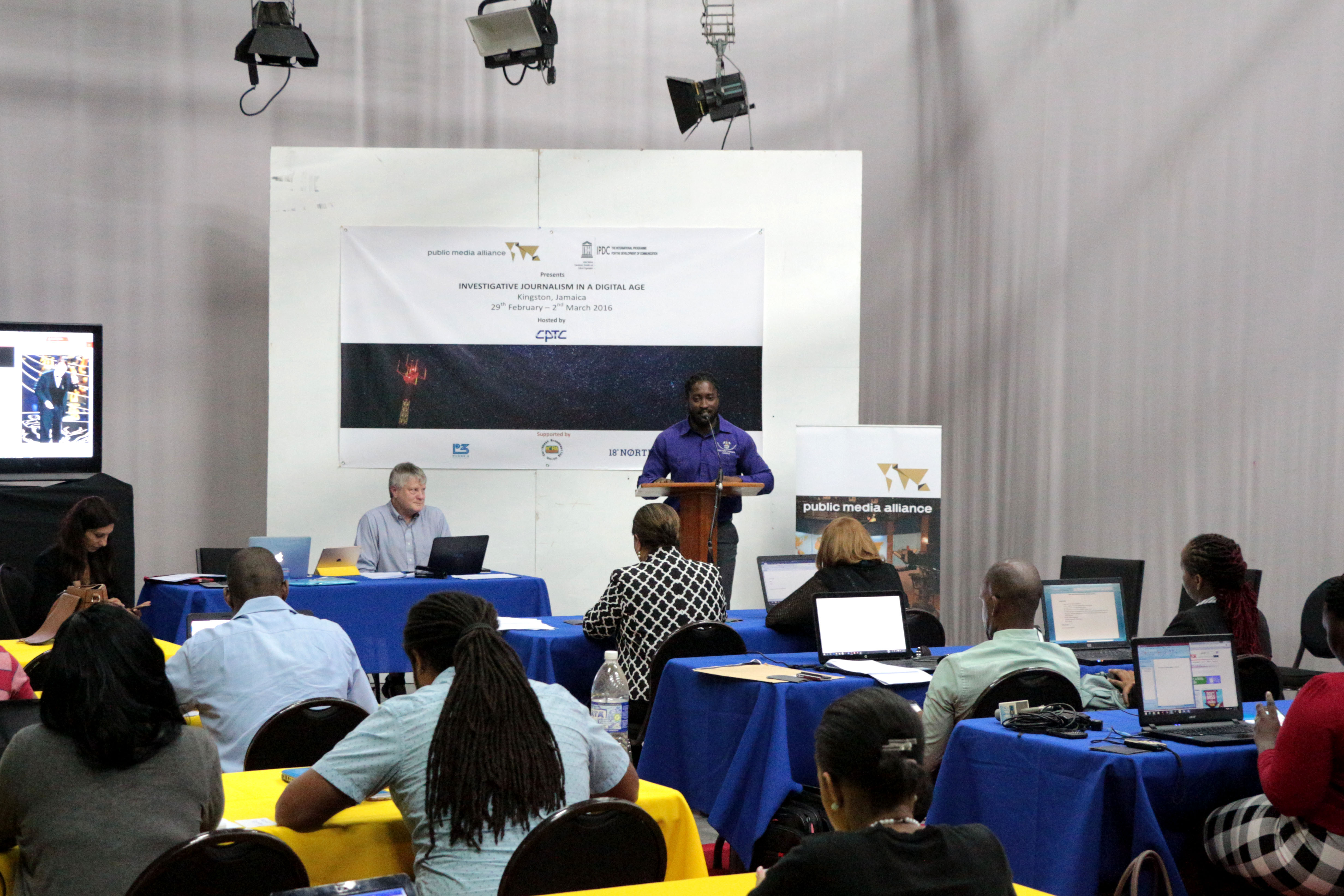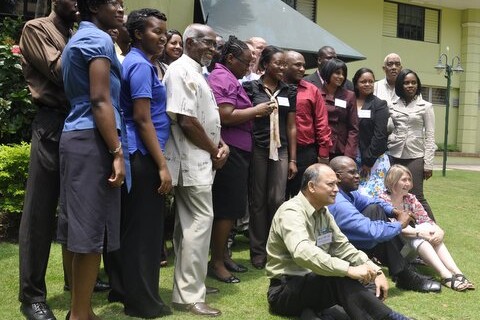Investigative journalism workshop “happening at just the right time”
22nd June 2023
In an interview with one of the facilitators of the PMA-organised workshop, we assess how the project will promote investigative journalism in sub-Saharan Africa.
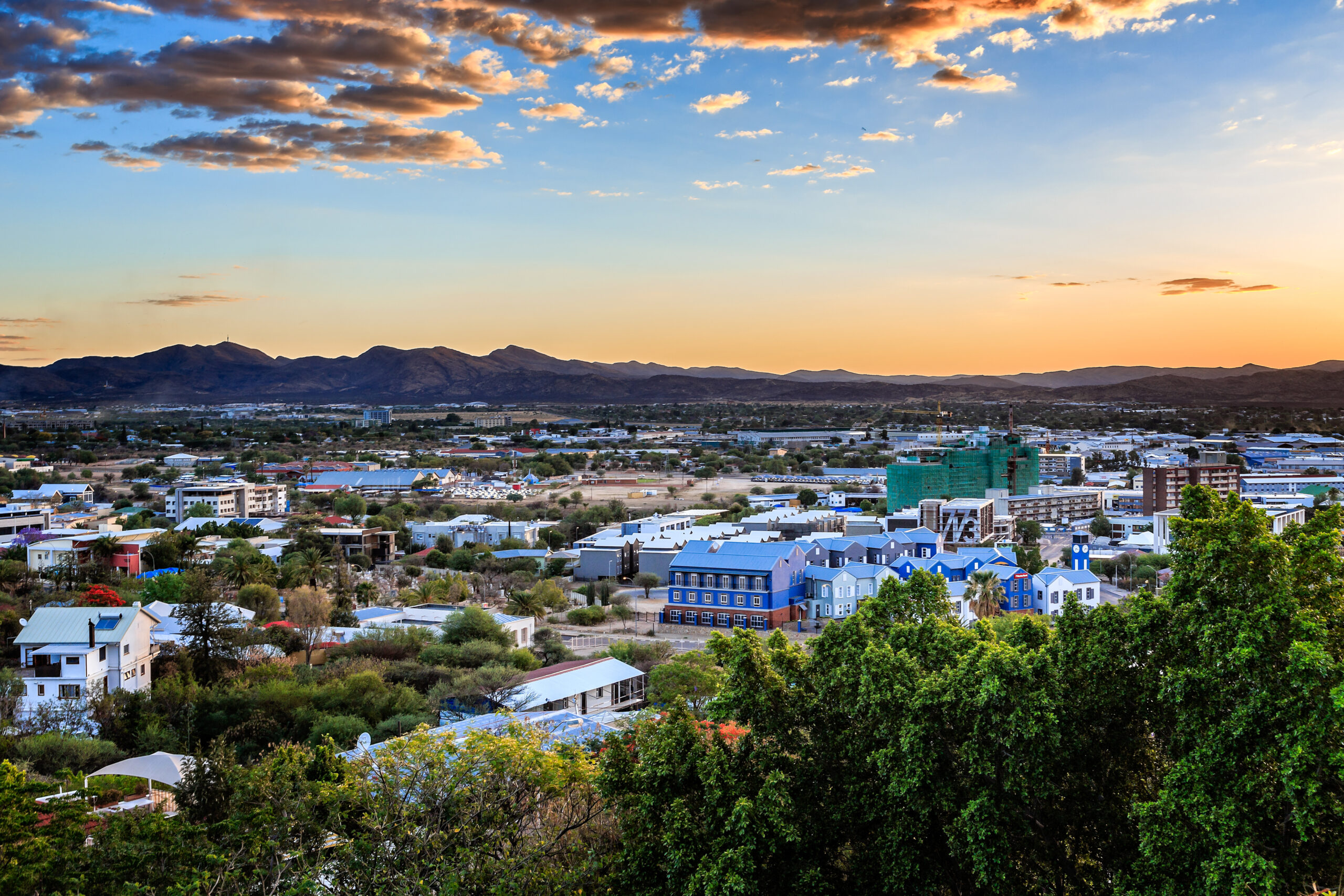
Next week, the Public Media Alliance (PMA) is running a two-day workshop to help sub-Saharan African journalists stay up-to-date on technology-driven investigative journalism approaches, including various methods of accessing material.
This workshop is in partnership with the Namibia University of Science and Technology (NUST) and is funded by the Grace Wyndham Goldie (BBC) Trust Fund.
Emily-May Brown is one of the facilitators of the workshop, taking place in Windhoek, Namibia on 28-29 June 2023. Emily-May Brown is a Senior Lecturer in Journalism and Media Technology at the Namibia University of Science and Technology (NUST).
Read more: Investigative journalism in sub-Saharan Africa
The Public Media Alliance’s Journalist and Research Officer, Dorcas Mirembe-Korsah spoke with Ms. Brown about the importance of investigative journalism in Namibia and sub-Saharan Africa and the skills journalists need to have to protect themselves and their sources during investigation.
This interview has been edited for brevity and clarity.
Dorcas Mirembe-Korsah: Who will be in attendance and what fields of journalism are they from?
Emily-May Brown: Among the participants are journalists from media houses outside of Namibia namely, Botswana, Ghana, Mozambique, Nigeria, the Seychelles and South Africa. A real effort was made to have diversity in terms of affording both women and men the opportunity of participating in the PMA Investigative Journalism workshop. Furthermore, the participants are from both private and public (state-subsidised) media houses.
The diversity aspect is also evident in terms of the type of media house namely, print (daily and weekly newspapers), the National Broadcaster – the Namibian Broadcasting Corporation (both Radio and Television) – and the Namibia Press Association (NAMPA).
Often Media houses rely on skeletal staff, which means that having staff away on training, is often considered a “luxury”. However, the fact that this is a two-day workshop was seen as do-able – i.e. not too long.
DM-K: What skills can journalists expect to leave with after the project?
E-MB: People tend to rock up for a meeting and they haven’t read the documents to be addressed so it’s things like preparing for an interview and being informed about the skill-set/CV of an interviewee. Doing the background checks about the interviewee you know, fact-checking, checking the efficacy of content plus additional sources of information. Using images/photos that tend to “tell” a story, managing sources of information and digital storytelling using symbols, pictures and graphics. The tools for investigative work of how it’s done.
DM-K: What is the demand like for burgeoning journalists to learn such skills?
E-MB: Investigative journalism skills are often the domain of a few journalists in media houses. Therefore, to have such skills made available to more journalists is considered a blessing. Post COVID-19 conditions have been tough – newsrooms are smaller which means that the available staff have more to do and, therefore, need a greater variety of skills. This workshop would go a long way towards raising the skills of the participants.
“The media have the important task of holding governments accountable – for example, on 29 November 2022, the President of the Republic of Namibia – Dr Hage Geingob – announced that the Access to Information Law had been gazetted.”
DM-K: What can countries, governments and media companies do to help support and encourage good journalism practices?
E-MB: Namibia has a dedicated Ministry of Information and Communication Technology. Access to government officials is relatively easy in Namibia. The incumbent Minister would also serve on the National Commission to UNESCO, and should have current information on the media, their challenges and successes for reports to the National Commission to UNESCO. The Commission is of particular importance in terms of training or funding opportunities in terms of journalism projects through the International Programme for the Development of Communication (IPDC).
Membership in the various Media fora especially those that operate virtually, would be useful for the sharing of ideas, projects or training initiatives.
DM-K: In some countries digital journalism has become an alternative source to traditional journalism. What role can digital journalism play in sub-Saharan Africa?
E-MB: In a country such as Namibia – where Windhoek is its only (Capital) city – the digital revolution has facilitated access to information for many more people quite quickly. Namibia is a huge, small country – geographically it is large (with many parts not habitable – but its population is relatively small with about 2.6 million people. This means that traditional media such as newspapers take a while when they are transported by road to the various towns.
The cost of internet connectivity is still too high for many in Namibia. Perhaps as access improves and more become technologically literate, rates in terms of internet access might become more affordable. Universities have established Campuses in towns outside of Windhoek and such a development has also facilitated access to online content.
In Namibia we have communities – such as the San – who are often deprived of timely service because of the remoteness of their towns or villages. Facilities such as Community Centres with internet connectivity could be of real service to such communities in Namibia. For example, gender-based violence is still very real in Namibia. A technique such as digital story-telling – using both the written word and graphics/symbols could be a means of facilitating digital literacy as well.
Listen toour podcast
Uncovering and exploring the biggest
issues facing public media
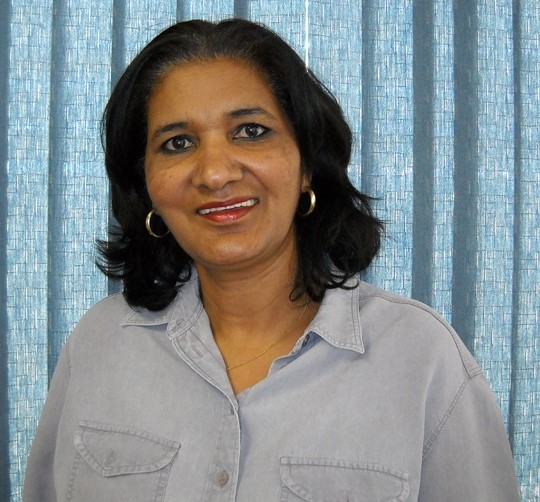
DM-K: Why is it important to champion investigative journalism in sub-Saharan Africa?
E-MB: Investigative journalism is important in any country, even democracies. ‘Speaking truth to power’ comes to mind and Namibia has been in the news with regard to corruption in terms of its fishing industry, for example. Currently, excavations in terms of the discovery of oil has received a great deal of attention not only locally but further afield. Diamonds are still mined from the seabed through NamDeb. With these scenarios in mind, the Media have an important gatekeeping role to play, hence the significance of such training for journalists.
Unfortunately, not many media houses in Namibia seem to find the time for investigative journalism. Previously, the investigative journalism role was undertaken by a private magazine called “Insight Namibia”. It was a monthly current affairs magazine.
Organisations such as IPPR [the Institute for Public Policy Research] have expressed concern in terms of the threat held by digital disruption for Namibian media.
The Namibian daily newspaper has an investigative journalism unit and probably rely on freelancers to support the work of their full-time staff.
“Investigative journalism is important in any country, even democracies. ‘Speaking truth to power’ comes to mind…”
DM-K: How can journalists protect themselves and sources in the course of investigative journalism?
E-MB: The cost of Investigative Journalism includes some dangers so [it’s] important to know UNESCO’s work on the safety of journalists, protecting not just you as a person, but also the source, your character, your profession, familiarising themselves with regional or international protocols to which Namibia is a signatory.
The media have the important task of holding governments accountable – for example, on 29 November 2022, the President of the Republic of Namibia – Dr Hage Geingob – announced that the Access to Information Law had been gazetted. The Access to Information Bill seeks to promote the public’s free access to information held by public entities. It also seeks to compel both public and private entities to make information available as soon as possible. However, it is the operationalisation of such a law that is important. Along with the Access to Information Law, we also have the need to operationalise the Whistle-blower Law and the Witness Protection Act.
Organisations in Namibia that work hard at keeping the aforesaid laws on the agenda include the Institute for Public Policy Research (IPPR) and the Namibia Media Trust. In addition, Namibia has a Media Ombudsman, as well as an Editors’ Forum.
DM-K: How can projects like this improve not only investigative journalism but journalism and storytelling as a whole in sub-Saharan Africa?
E-MB: These projects can help in establishing partnerships with various organisations such as UNESCO, Gender Links Southern Africa, Deutsche Welle. Universities in the UK, USA, Finland and Sweden have proven to be keen to partner with Journalism and Media Technology academic departments in Namibia. Such partnerships add value. Investigative journalism requires an awareness of issues, whether local, regional or international.
The COVID-19 pandemic caused great disruption in a country such as Namibia. Virtual work and studying impacted heavily on this small nation. Homes were overcrowded because of lockdown, and many could not carry on with informal income-generating activities. Internet access is a luxury, and university/college students were severely affected when they could not make use of kiosks or the library on the university campuses.
Journalism students had to do without the rigours of on-campus training in well-equipped labs, studios, editing suites and, generally, training-by-doing. A fair measure of catch-up had to happen, and I see this Investigative Journalism Workshop happening at just the right time.
Related Posts
15th June 2023
Investigative Journalism in Sub-Saharan Africa
Investigative Journalism in Sub Saharan…
9th March 2016
UNESCO & PMA Workshop on Investigative Journalism in the a Digital Age
Caribbean journalists from 11 nations…
28th January 2016

